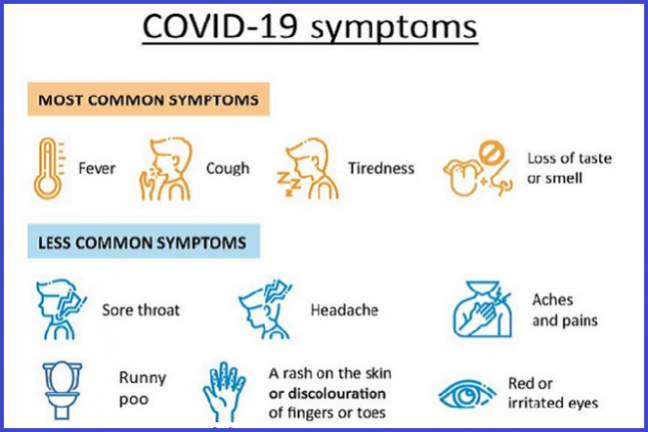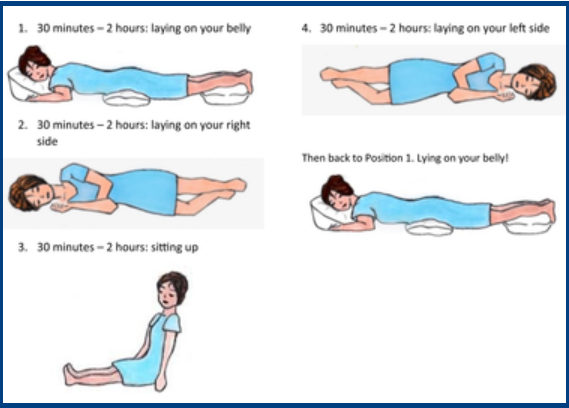COVID-19 Positive – Caring for an Adult at Home
IMPORTANT : The following information has been supplied by The Health Navigator New Zealand website - a trusted source of information. Asthma NZ recommend this advice is wise advice for those in our community who have respiratory conditions and if in doubt at all, PLEASE speak with us further here and if you are in an emergency situation DIAL 111.

COVID 19 Positive?
Most people who get COVID-19 have mild symptoms. You will be assigned a healthcare team and advised if you can self-isolate at home or not. It is important to monitor your symptoms and talk with your healthcare team if you have any concerns.
|
Call 111 if you:
|
|
Call your healthcare team if:
|
|
You may experience very mild or no symptoms.
|
How do I monitor my symptoms?
Being monitored at home simply means you record your own results and how you are feeling (symptoms). A member of your healthcare team will contact you regularly to see how you are doing.
How often your healthcare team checks in with you depends on your risk or how severe your symptoms are. It is important you keep track of your symptoms and write them in your diary, even when you are feeling okay. Your healthcare team will discuss your symptoms with you when they call, so it is important to have this information written down accurately.
Things you will need to record may include:
- your temperature (if you can)
- your pulse oximeter readings
- your heart rate (pulse)
- how you are feeling
- how your breathing is
- any new symptoms you have.
We have created a symptom diary and a health and symptom diary to help you with your recordings.
COVID-19 – what to expect
Most people will have mild COVID-19 symptoms for up to 2 weeks. Symptoms tend to appear around 2–5 days after you are infected but can take up to 14 days to show.
Days 1–3
Early symptoms of COVID-19 vary widely.
- It can start with a tickle in your throat, a cough, fever or headache. You may also feel short of breath or a little pressure in your chest.
- Sometimes it begins with a bout of diarrhoea (runny poo).
- You may feel tired and/or may lose your sense of taste and smell.
- You may experience some or none of these symptoms.
Even if you have a mild COVID-19 infection, avoid running, workouts, weights and high impact activities until you’ve been cleared by your healthcare team.
Days 4–6
These are important days to be more aware of your symptoms. This is when lung (respiratory) symptoms may start to get worse, especially for older people and people who have other conditions like high blood pressure, obesity or diabetes.
You may start to feel worse and may have aches, chills, cough and an inability to get comfortable.Some younger people may develop rashes, including itchy red patches, swelling or blistering on your toes or fingers.
Days 7–8
Some people may get worse at this point, or start to feel better briefly then take a turn for the worse.
If you start to feel worse, contact your healthcare team.
Days 8–12 (week 2)
Continue to monitor your symptoms and record them in your diary.
You may feel better sleeping on your front/stomach or side (see graphic below).If you start to feel worse, contact your healthcare team.
Days 13–14
A slow return to activity is advised.
If you have ongoing severe symptoms, your healthcare team will advise you what to do.
This is why recording your symptoms is so important.
Managing symptoms at home
There is no specific treatment for COVID-19. It is important to rest at home and drink plenty of water.
Treatment is aimed at easing your symptoms. Your healthcare team may suggest the following medicines to ease your symptoms.
- Aches and pains: Paracetamol or ibuprofen to help with fever, headaches and body aches.
- Blocked or runny nose, or cough: Nasal sprays, decongestants, lozenges or cough mixtures.
- Sore throat: Suck a teaspoon of honey or gargle with salt water. You can also try medicated lozenges, gargle or throat spray.
- Vomiting (being sick) and diarrhoea (runny poo): The most important thing is to drink plenty of fluids, to avoid dehydration.
Read more about how to manage your symptoms if you are COVID-19 positive.
Your healthcare team will advise what is suitable and help arrange delivery if needed.
Note: When you have COVID-19, the physical symptoms of the illness may be obvious and are important to monitor, but taking care of your mental health and wellbeing is also important. Read more about taking care of your mental wellbeing if you are COVID positive.
Ways to help your breathing
COVID-19 research from other countries has shown that changing your body position when resting can be helpful to ease your breathing. This increases the flow of oxygen to your lungs and improves your comfort. Rather than lying only on your back, try resting on your stomach and on your side.
Sitting upright in a chair is also useful and may be more comfortable after drinking or eating. Change position every 30 minutes to 2 hours, rotating as below.

Recovery
Even if you had a mild COVID-19 infection, avoid running, strenuous exercise and high impact activities until you’ve been cleared by your healthcare team. Healthcare professionals advise a slow, gradual return to activity. People with severe symptoms and people who needed extra treatment due to low oxygen levels may still feel unwell and tired. It may take some time to recover.
Everyone will have a different experience in their recovery from COVID-19. Some people may recover in days, some in weeks. For others, it could be months. But although each case is unique, people recovering from more severe symptoms are likely to face a longer recovery period. Learn more about long COVID.
References
- About COVID-19 Ministry of Health, NZ
- Guidance and patient instructions for proning and repositioning of awake, nonintubated COVID-19 patients Academic Emergency Medicine, 2020


